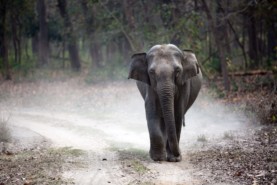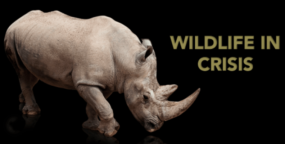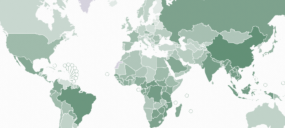Posted on 18 Dec 2008
Since its inception in 1984 the Environmental Investigation Agency has been exposing environmental crime around the globe and has sought greater political support for strong enforcement action against these crimes. Yet despite the fact that environmental crime poses a growing threat, it remains a low priority for the international enforcement community.
This report shows the scale and impacts of environmental crime and calls for strong political will to tackle it as a matter of urgency. Environmental crimes can be broadly defined as illegal acts which directly harm the environment. They include: illegal
trade in wildlife; smuggling of ozone depleting substances (ODS); illicit trade in hazardous waste; illegal, unregulated, and unreported fishing; and illegal logging and the associated trade in stolen timber.
Perceived as ‘victimless’ and low on the priority list, such crimes often fail to prompt the required response from governments and the enforcement community. In reality, the impacts affect all of society. For example, illegal logging contributes to deforestation. It deprives forest communities of vital livelihoods, causes ecological problems like flooding, and is a major contributor to climate change – up to one-fifth of greenhouse gas emissions stem from deforestation. Illicit trade in ODS like the refrigerant chemicals chlorofluorocarbons (CFCs), contributes to a thinning ozone layer, which causes human health problems like skin cancer and cataracts.
Environmental crime generates tens of billions of dollars in profits for criminal enterprises every year, and it is growing. In part, this is due to the proliferation of international and regional environmental agreements, leading to more controls on a range of commodities. It is also due to mutations in the operations of criminal syndicates, which have been diversifying their operations into new areas like counterfeiting and environmental crime.
Environmental crimes by their very nature are trans-boundary and involve cross-border criminal syndicates. A tiger skin or an ivory tusk passes through many hands from the poaching site to the final buyer. A tree felled illegally can travel around the world from the forest via the factory to be sold on the market as a finished wood product. In the era of global free trade, the ease of communication and movement of goods and money facilitate the operations of groups involved in environmental crime.



